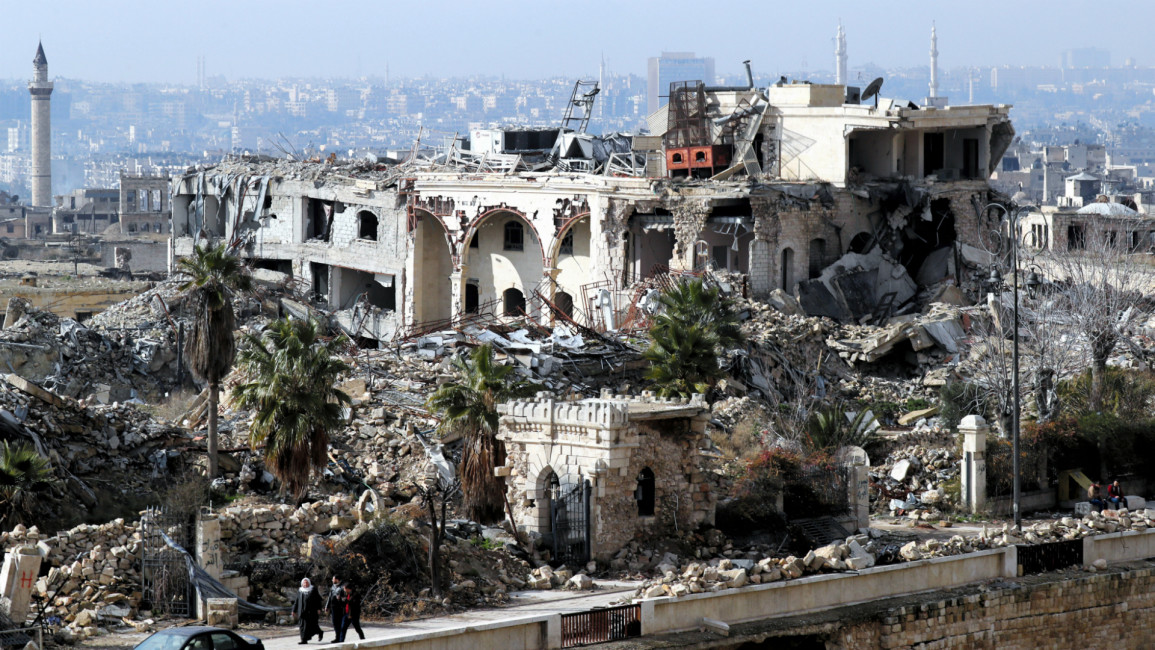Russian-led 'Blue-Helmets' could deploy to Syria after peace deal
Moscow will propose the introduction of a Russian-led peacekeeping force for Syria during upcoming diplomatic talks scheduled to take place in Kazakhstan later this month according to a report published in the Lebanese daily al-Akhbar on Thursday.
The proposed force, said al-Akhbar – which is considered favourable to Syrian President Bashar al-Assad and his allies, particularly the Lebanese Shia paramilitary group Hezbollah – will be made up of mostly Russian personnel with United Nations supervision and the cooperation of the Iranian and Turkish militaries.
Muslim Chechen-Russian regular troops – units of which are already present in Syria – are set to play a prominent role in the prospective peace keeping force referred to by al-Akhbar as “the blue helmets” with the Lebanese daily further claiming that Syrian opposition figures have expressed an openness to such an arrangement during recent talks held in Moscow.
Al-Akhbar’s report comes two days after Russian news agency Interfax said on Tuesday that meetings in Astana will seek to consolidate a nationwide ceasefire for Syria that has been in place since late December but with some violations, notably in the contested Wadi Barada valley close to Damascus.
Mohammad Alloush, head of the Army of Islam, is set to lead the opposition delegation in Astana, with Bashar al-Jaafari, Syria’s representative at the UN, set to head the regime delegation.
Speaking on Wednesday, Russian Foreign Minister Sergei Lavrov said that all opposition groups were invited to attend talks with the exception of those linked to the Islamic State group or the al-Qaeda linked Jabhat Fateh al-Sham.
Around 20 groups fighting under the banner of the Free Syrian Army have confirmed their attendance.
 |
Turkey and Iran are also scheduled to attend the talks. |  |
UN invited
It remains unclear whether the United States will be present. Moscow, and Ankara have both expressed an openness to Washington’s participation, but figures in Tehran have expressed reservations.
On Thursday a spokesperson for Staffan de Mistura said that the UN Syria envoy had received an invitation to attend the talks. However his role in Astana remained under discussion, according to Jan Egeland, currently the head of UN-backed humanitarian taskforce for Syria.
Speaking to The New Arab on Thursday Mamoun Hajj Musa, a representative of Suqour al-Sham, said that rebel delegations were holding talks in Ankara before heading to Astana in order to arrive at a united position among opposition groups ahead of negotiations.
“All factions agree to negotiations with the exception of Ahrar al-Sham,” said Hajj Musa. “The delegation will seek to consolidate the cease-fire especially in Wadi Barada … and not allow the regime to modify its goals or split off from its conditions.”
In an interview with Russian TV on Thursday Syrian President Bashar al-Assad expressed confidence that talks in Astana would help to bring about local “reconciliation” agreements with rebel groups that would see them put down their weapons in return for pardons.
Such deals which are routinely preceded by prolonged sieges and bombardment have become the Syrian regime’s favoured method of pacifying rebel-held territories in recent months and have been condemned by opposition activists as forms of “ethnic cleansing” due in part to the fact they often involve the transfer of local populations to other areas of the country, in particular rebel-held Idlib.
Talks in Astana are set to begin on Monday 23 January, and aim to bring an end to nearly six years of civil conflict in Syria that has killed over 400,000 people, lead 4.8 million Syrians to become refugees, and a further 6.6 million to become internally displaced within the country.



